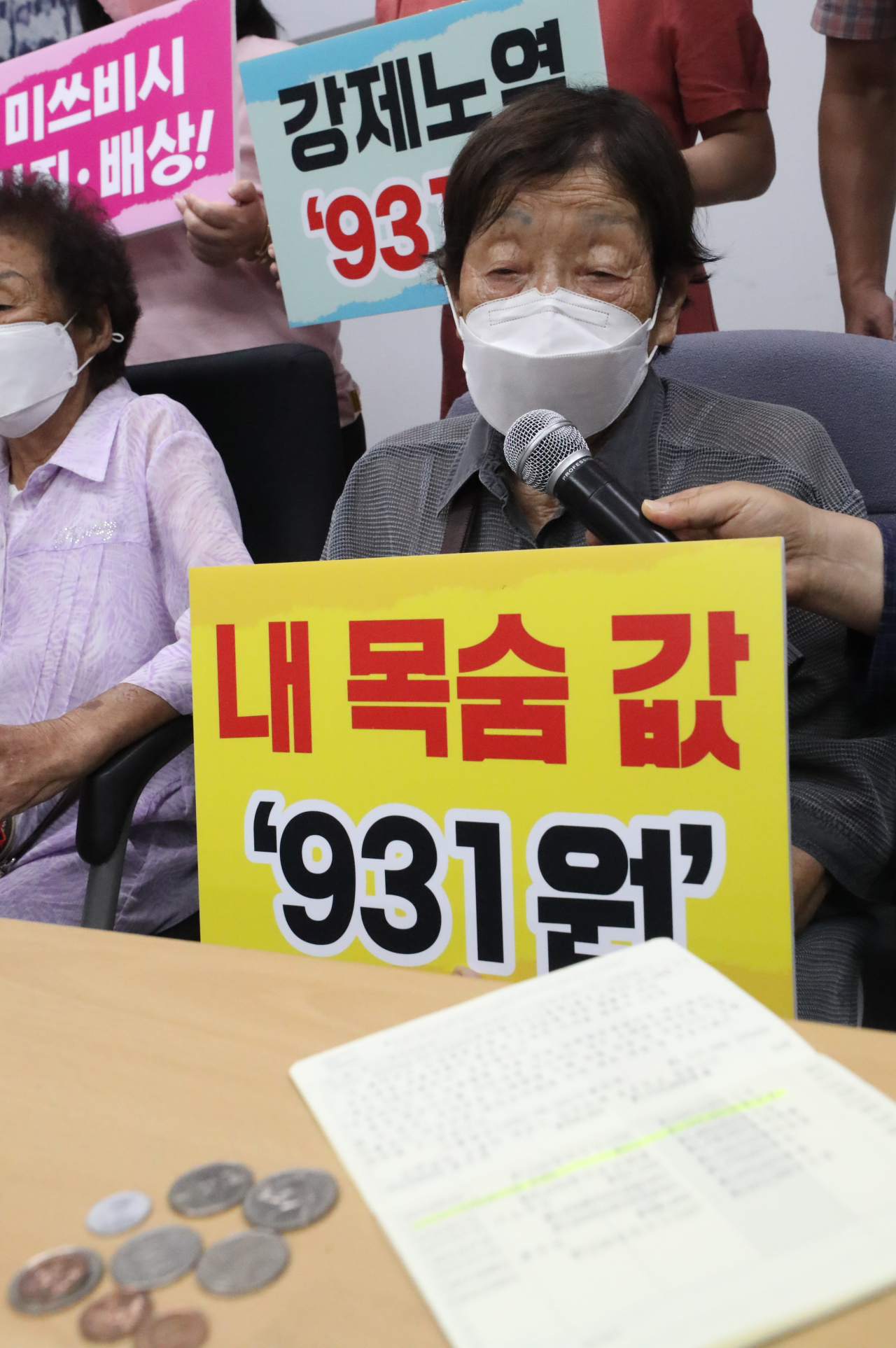Supreme Court expected to decide soon whether to finalize liquidation order against Mitsubishi
By YonhapPublished : Aug. 19, 2022 - 11:41

The Supreme Court was expected to rule as early as Friday on an appeal that Japanese firm Mitsubishi Heavy Industries filed against a lower court's order that some of its assets in South Korea be sold off to compensate victims of wartime forced labor.
Should the top court reject the appeal, Japan is sure to protest massively, and the already frayed relations between the two countries, which have shown signs of improvement since President Yoon Suk-yeol took office, would be dealt a heavy blow.
Mitsubishi filed the appeal with the top court in April after a district court in the central city of Daejeon rejected an earlier appeal against its order that some 500 million won ($376,477) worth of trademark and patent rights the Japanese firm holds in South Korea be cashed to compensate forced labor victims.
By law, the Supreme Court is required to make a decision by Friday if it chooses to dismiss the appeal without formal deliberations. But the court can sit out the deadline and proceed with formal deliberations to make a verdict later.
Japan has claimed that all reparation issues related to its 1910-45 colonial rule of Korea, including the forced labor issue, were settled under a 1965 treaty that South Korea signed to normalize relations with Japan in exchange for $500 million in grants and low-interest loans.
Tokyo has warned of serious consequences if the Supreme Court finalizes the asset sell-off order.
In an effort to avert such a situation, the foreign ministry has recently submitted an opinion piece to the Supreme Court, stressing that it has been making various efforts to resolve the forced labor issue diplomatically.
The forced labor row began after the Supreme Court made unprecedented rulings in 2018 that Japanese firms should pay compensation to forced labor victims, and Japan, in apparent retaliation, imposed export curbs against South Korea.
Since Yoon took office with a pledge to restore relations with Japan, South Korea has made a series of attempts to reach out to the neighboring nation, but Japan has demanded that Seoul first take steps to resolve the forced labor issue.
In a press conference marking 100 days in office earlier this week, Yoon said his government is "deeply considering" ways to compensate the forced labor victims in a way that does not conflict with Japan's sovereignty concerns. (Yonhap)







![[Graphic News] More Koreans say they plan long-distance trips this year](http://res.heraldm.com/phpwas/restmb_idxmake.php?idx=644&simg=/content/image/2024/04/17/20240417050828_0.gif&u=)
![[KH Explains] Hyundai's full hybrid edge to pay off amid slow transition to pure EVs](http://res.heraldm.com/phpwas/restmb_idxmake.php?idx=644&simg=/content/image/2024/04/18/20240418050645_0.jpg&u=20240419100350)








![[KH Explains] Hyundai's full hybrid edge to pay off amid slow transition to pure EVs](http://res.heraldm.com/phpwas/restmb_idxmake.php?idx=652&simg=/content/image/2024/04/18/20240418050645_0.jpg&u=20240419100350)

![[Today’s K-pop] Illit drops debut single remix](http://res.heraldm.com/phpwas/restmb_idxmake.php?idx=642&simg=/content/image/2024/04/19/20240419050612_0.jpg&u=)